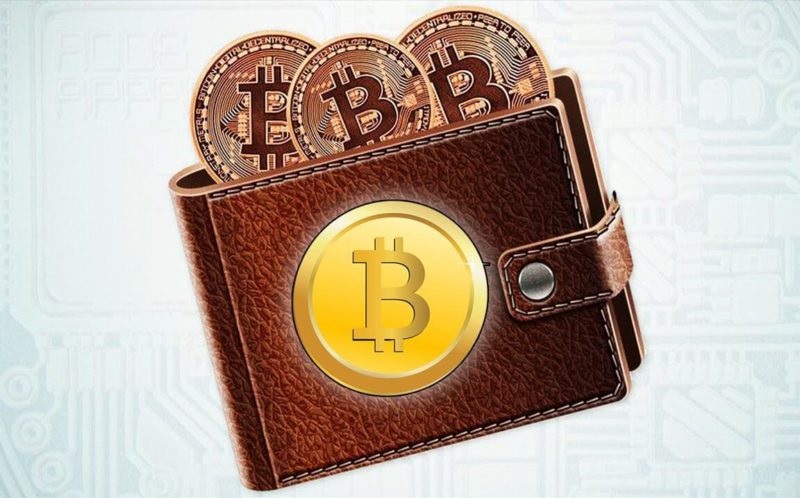If you are new to the world of cryptocurrencies and are purchasing your first bitcoin, you will need a wallet to secure your coins. A single interaction with a malicious wallet can result in losing your coins forever. So it is important to choose a good wallet for your Bitcoin. This choice is not to be taken lightly because you are putting real money into these coins.
There are as many reliable Bitcoin wallets as there are fake ones. It is important to do your research about the platform that you choose. In this article, readers will find some recommendations for selecting a Bitcoin wallet.
Table of Contents

Factors to consider while choosing a bitcoin wallet
Self-custody: This is the primary and most crucial feature of bitcoin wallets. If you do not have a private key or seedphrase for your wallet, then you have no control over it. So choose a BTC wallet that allows you to generate a private key or seedphrase and put this away securely.
If you have these keys, you can control your bitcoin and move it in or out of the wallet anytime. It is also possible to back up the wallet to another wallet service if you hold the private keys.
Security: Ideally, the best bitcoin wallets store your seedphrase offline. Most experts recommend using a hardware wallet as users do not have to worry about attack vectors associated with internet-connected devices.
Meanwhile, if you choose to use an online wallet, it is crucial to ensure that the provider implements basic security measures, such as using HTTPS protocol. The wallet should also offer strong and secure logins with two-factor authentication.
Ease of Use: Choosing a bitcoin wallet that is easy to navigate is vital. This way, you can easily view wallet addresses, balances, price action, and even advanced features such as transaction signing.
Additionally, the wallet needs to support the creation of multiple bitcoin wallets (accounts). This way, you can maintain separate accounts for different purposes.
Supported Bitcoin Address Format: Bitcoin currently has three address formats: Legacy, Bech32, and P2SH. Access to these addresses means you can quickly receive or withdraw coins from third parties seamlessly. The Bech32 address format primarily supports cheaper transactions and is becoming widely adopted by Bitcoin exchanges.
Multi-sig or Multisignature: Check if your secure wallet has a multisig option. This is the preferred way to secure bitcoins from attackers and theft. A multi-sig wallet requires multiple keys for authorization of a transaction. It is like requiring two keys from different people to unlock a single lock. Various parties are required to spend funds.
Transparency: if the service provider is transparent about its operations, team, and open-source code, then it is highly preferable. If not, then you do not know if the people behind the wallet are keeping the wallet secure. If the code is open source, other white-hat security experts can review it to find vulnerabilities, thus making the wallet even more secure.
Wallet Updates: In a fast-moving Bitcoin world, your preferred wallet provider must stay abreast of the latest security updates and ship updates accordingly. You can review the wallet's update history on the company website, Github page, or app store to confirm the frequency of updates. Of course, such updates may also include introducing new features to improve the user experience.
Supported Coins: If you don't want to hold only Bitcoin, then it is essential to choose a wallet that supports other cryptocurrencies and tokens. This way, you can manage all your assets from a single interface.
Other factors to consider for bitcoin wallets
Does the wallet promote the reuse of addresses?
If the wallet is HD, i.e., has a Hierarchical Deterministic feature, then it always uses new addresses for each bitcoin transaction. This increases the privacy of users. Given that privacy has been considered a big issue recently, deterministic wallets offer a well-rounded architecture with more protection for users.
Does the wallet support anonymity?
If you're interested in anonymity, then it's vital to choose wallets that do not require any personal information (including email) for the setup process. This is not to be confused with wallets such as british bitcoin profit or Bitcoin exchanges that require extensive know-your-customer (KYC) processes. You can also read through the wallet's "Cookies Policy" to ensure that they do not implement trackers that store information about your location and other private details.
How smooth is the backup process?
Backups are another factor to consider while choosing bitcoin wallets. The service provider should give you the option to back up your wallet. The backup is encrypted in some cases. The backup restoration process also needs to be quick and easy. Look out for these options before you move on to making a purchase or signing up.
What is the wallet's reputation within Bitcoin communities?
It is essential to check the reputation of the wallet that you choose. You can learn about this on various internet forums like Bitcoin Forum or Reddit. Look out for red flags and complaints made by other users. You can also review the app store's reviews and ratings to see what peers think about the wallet's security and user experience.
Conclusion
There are as many reliable Bitcoin wallets as there are malicious ones. This article covered the factors to consider when choosing a Bitcoin wallet. Features such as self-custody, security, ease of use, and developer transparency are indispensable.
In the end, you'll find the best wallet solution and keep your coins well secure from theft.






 usdt
usdt xrp
xrp

